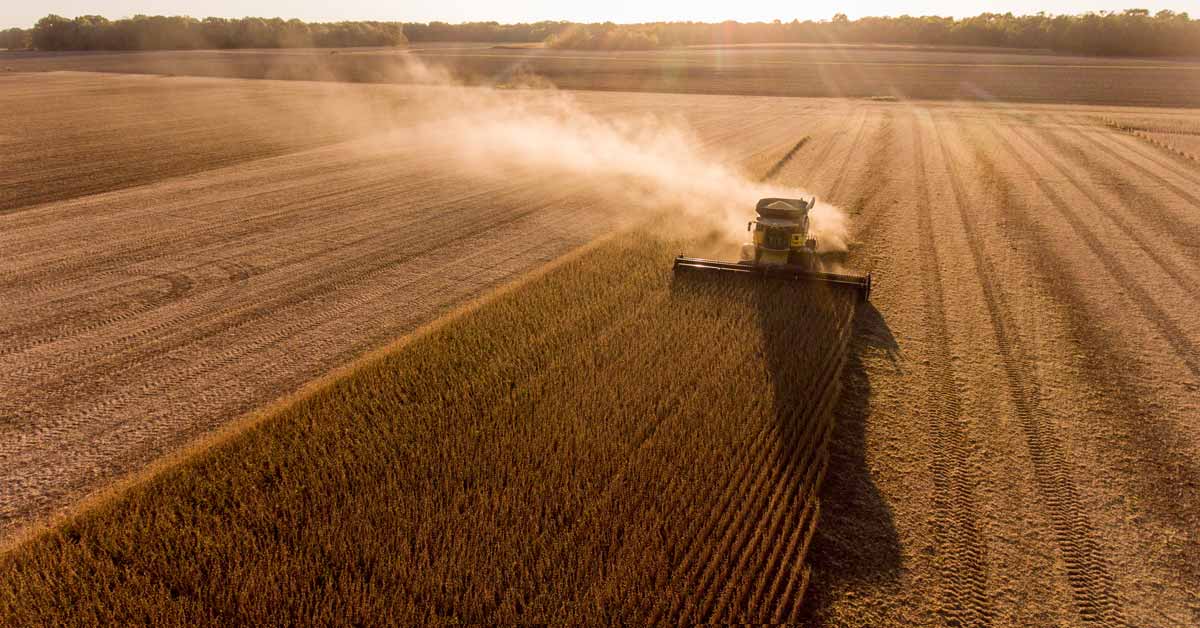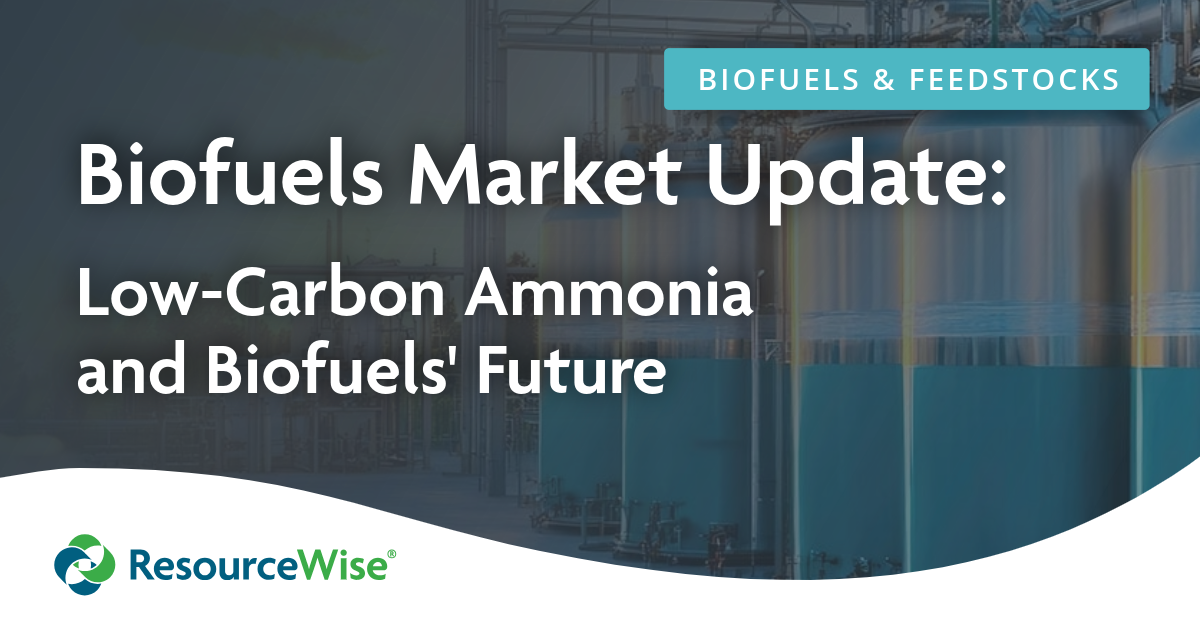3 min read
US Midwest Biofuels Outlook Part 1: Uncertainty and Opportunity Ahead
ResourceWise
:
Feb 12, 2025 12:00:00 AM

The US Midwest has remained a vital component of the biofuels market. Its vast range of agricultural land grows many of the feedstocks powering the production of ethanol and biodiesel. Accordingly, the region remains highly sensitive to market volatility, as is happening right now with shifting US policy.
Although much of the outlook remains uncertain, many stakeholders are optimistic about the continued support of US-based biofuel production. In the first of this two-part series, we'll explore current market sentiment in the US Midwest and what it could mean for the broader industry outlook.
A Critical Year for Ethanol and Biodiesel
At this year's Iowa Renewable Fuels Summit, industry leaders gathered with frustration and optimism about what lies ahead. According to a Nebraska Public Media report, the biofuels sector is bracing for potential shifts in policy, particularly regarding the Renewable Fuel Standard (RFS). This comes after the new US administration's shift in priorities, focus, and especially funding.
Political transitions always bring some unpredictability with them. But the current change of guard seems especially significant given the differences in administrative focus and opinions about climate change and sustainability. While challenges are inevitable, advocates are reiterating that they won't back down from the fight for stronger renewable energy policies.
Focus on RFS in 2025
For many in the industry, the top priority heading into 2025 is securing updates to the Renewable Fuel Standard. This federal program requires oil refiners and fuel importers to either blend biofuels like ethanol into their fuel supply or purchase credits from those who do.
Thanks to this policy, nearly every gallon of gas sold in the US contains 10% ethanol (E10). And about 45% of all corn grown nationwide goes toward ethanol production.
Despite these numbers, the problem lies in the volumes.
The required biofuel volumes, Renewable Volume Obligations (RVOs), haven't kept pace with industry growth. To make matters worse, the Environmental Protection Agency (EPA) has a history of dragging its feet when setting these requirements. Trump's swift changes to governmental spending will likely not help this situation, either.
The Push for Higher Biofuel Mandates
The biodiesel sector is facing a battle similar to that of other biofuels. Several industry members spoke directly about their challenges during the Iowa Renewable Fuels Summit.
National Oilseed Processors Association President Devin Mogler highlighted that soybean oil is focused on biodiesel rather than food production. Like other biofuels, the most significant area of focus right now are RVOs:
"While half of [soybean] oil goes into the food supply, half of it is used for biodiesel, and that’s an increasing percentage. And from my members' perspective, the most important issue is getting those RVO numbers higher."
To help processors and producers get there, new EPA Administrator Lee Zeldin claims he will help. During his confirmation hearing, Zeldin pledged to set RVOs in a timely and appropriate manner. Although his words sound encouraging, skepticism persists regarding what happens next.
Eyes on EPA as Midwest Biofuels Stakeholders Pay Close Attention
Kevin Studer, Vice President of Government Relations at the Iowa Corn Growers Association, spoke directly about Zeldin's pledge. As he noted during his talk at the Summit, it's good to be optimistic while remaining vigilant about making the needed changes:
"I'll take [Zeldin] at his word on that. I think it's our job at Corn Growers to hold his feet to the fire on those words, as we did with President Trump many years ago on a lot of ethanol policy."
Studer's seemingly aggressive position reflects a strong commitment to holding Trump appointees and other officials to their word. This wouldn't be the first time biofuel advocates needed to get tough to see actual movement.
In the early years of Trump's first presidency, the industry fought hard against refinery exemptions that undermined RVOs. A high biofuel mandate doesn't mean much if loopholes allow refineries to dodge the requirements.
Looking Ahead: Will 2025 Be a Turning Point?
With mounting pressure on the EPA to set higher RVOs and fewer exemptions, the next year could be a big one for ethanol and biodiesel. Industry leaders know what's at stake and are ready to make their voices heard.
Stay tuned for part two of this series where we will explore further implications of the current 45Z Tax Credit situation in relation to Midwest biofuel production and processing.
In the meantime, make sure to subscribe to our weekly blog update and monthly newsletter so you'll never miss out on what's important.





